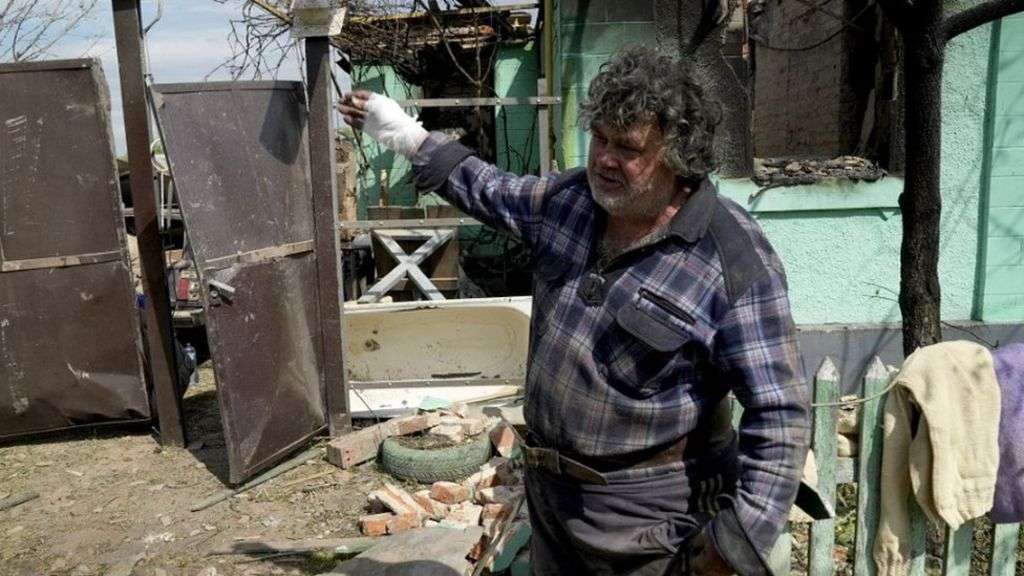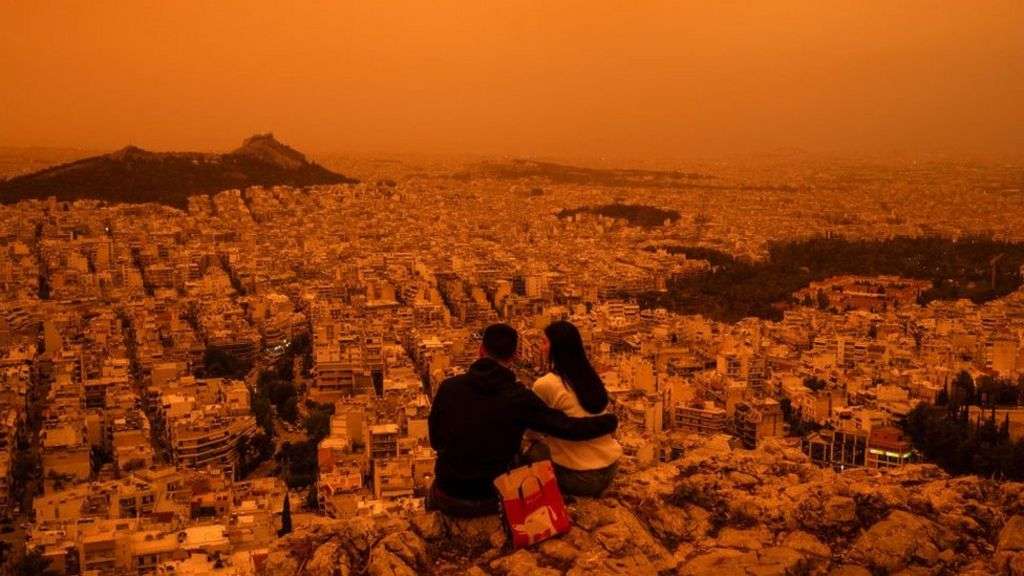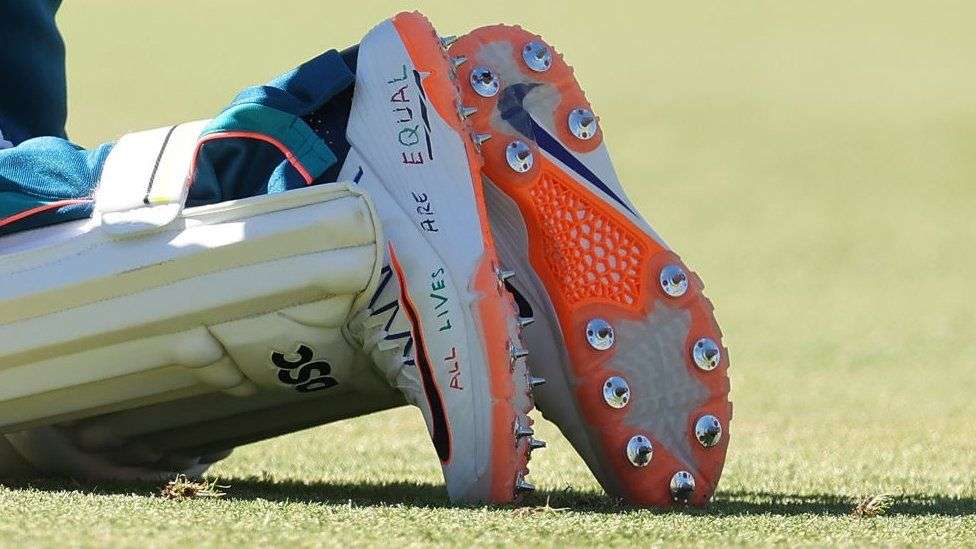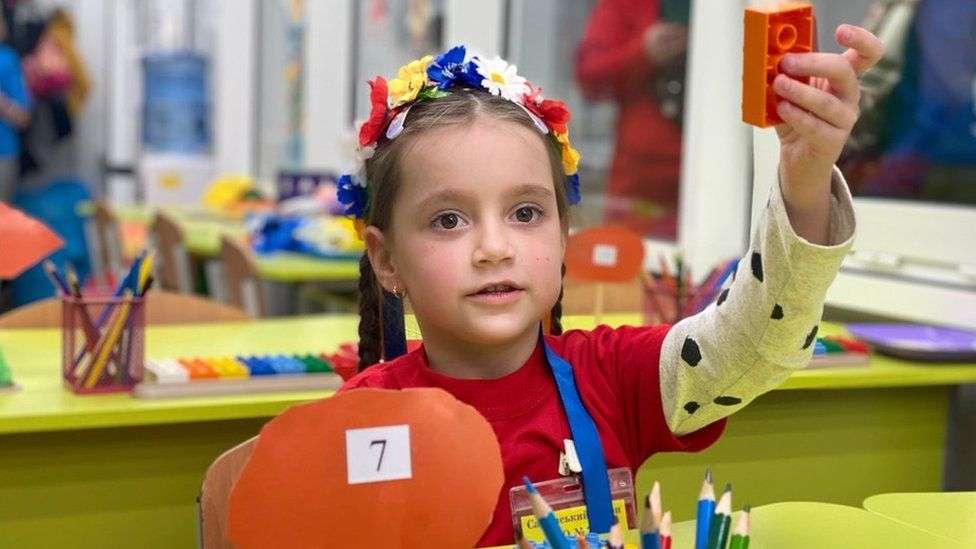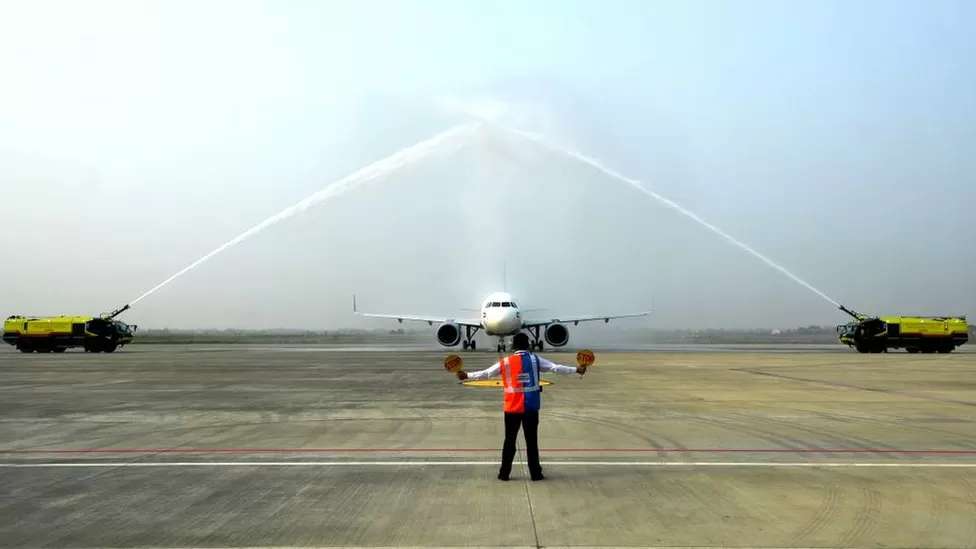Russian attacks in north-east Ukraine have prompted the evacuation of almost 1,800 people from the Kharkiv area, the regional governor has said.
Heavy fighting has continued in the border area following Russia's surprise incursions on Friday.
Kyiv has been expecting a Russian summer offensive for some time - including a possible attempt to capture Kharkiv, Ukraine's second city.
But Ukraine insists its forces are able to resist any attack.
On Saturday Russia said it had seized five villages near the town of Vovchansk in its latest offensive. The BBC has not been able to independently verify the claim.
It is still not clear how far the Russians will advance - whether this is a probing attack or the start of something bigger.
Ukrainian artillery guns are now firing back. The booms of exchanging fire echo loudly down the already bomb-damaged streets.
A total of 1,775 people have been evacuated, Kharkiv regional head Oleh Syniehubov said on social media. Hundreds more remain in Vovchansk, just 6km (3.7 miles) from the Russian border.
Serhii, a resident, told the BBC that his home and vehicles had been destroyed by a Russian glide bomb.
His wife had been rushed to hospital with more serious injuries. Small fires were still pouring smoke across the remnants of his home.
Serhii said he did not want to leave because he was afraid of what might happen to their four goats.
As we surveyed the damage there was the screech of yet more glide bombs being released, followed by the heavy thud of the explosion.
Russia's air force is having an increasingly deadly effect, and for now Ukraine has no answer.
Ukrainian officials say Russia had the capability to aggravate the situation in border areas but not to capture the city of Kharkiv itself.
Reports suggest Moscow is hoping to create a 10km (six-mile) buffer zone for its Belgorod region, after a series of Ukrainian cross-border attacks.
On Friday, the US announced a new $400m (£319m; €371m) military aid package for Ukraine.
It will be Washington's third instalment of aid to the country after months of political deadlock - adding to the previous package worth a total of $7bn sent in late April.
US Secretary of State Anthony Blinken said the "urgently needed" aid would include air defence munitions, artillery rounds, anti-tank weapons and armoured vehicles.
On Friday, National Security Spokesman John Kirby told reporters that Russia would "make further advances in the coming weeks to try and establish a buffer zone along the Ukrainian border".
Moscow has been looking to capitalise on the delayed arrival of US weaponry by continuing to push forwards in the eastern Donetsk region.
The return of heavy fighting in the north-east further illustrates Russia's growing ambitions.


